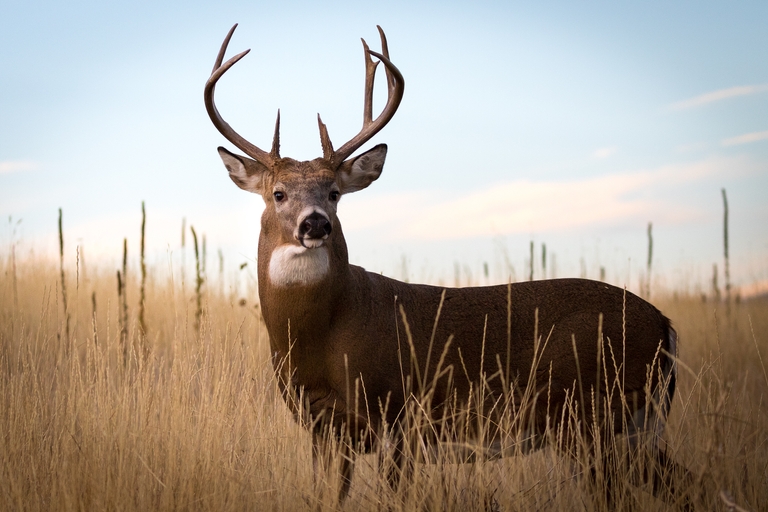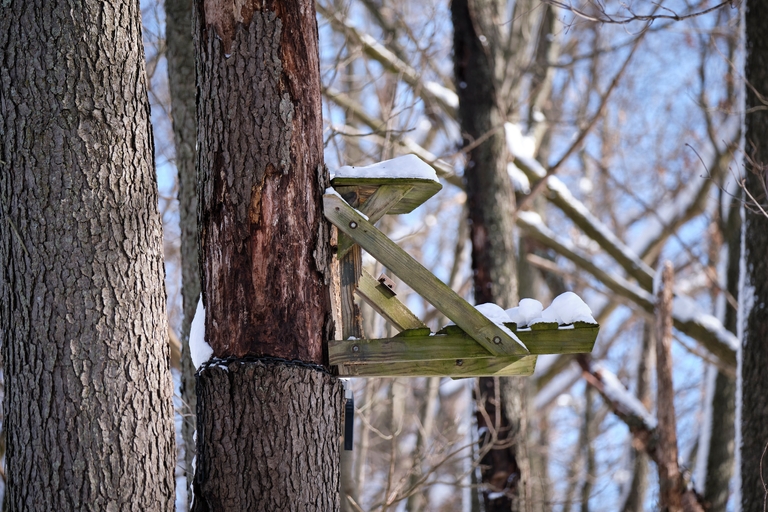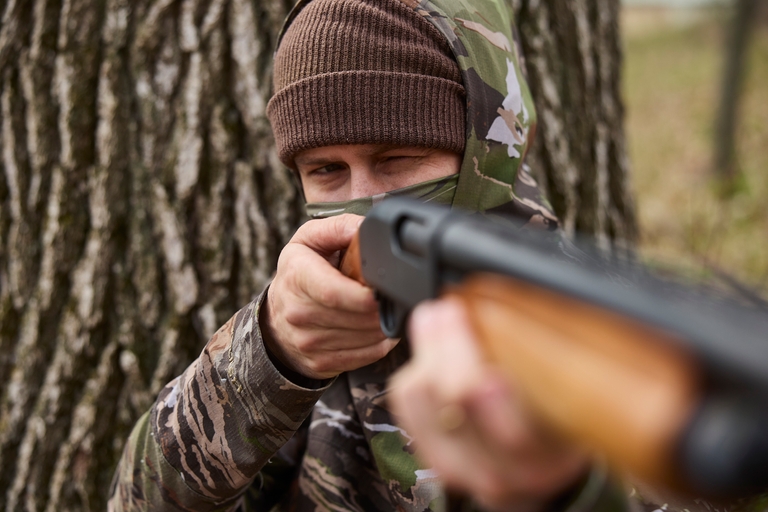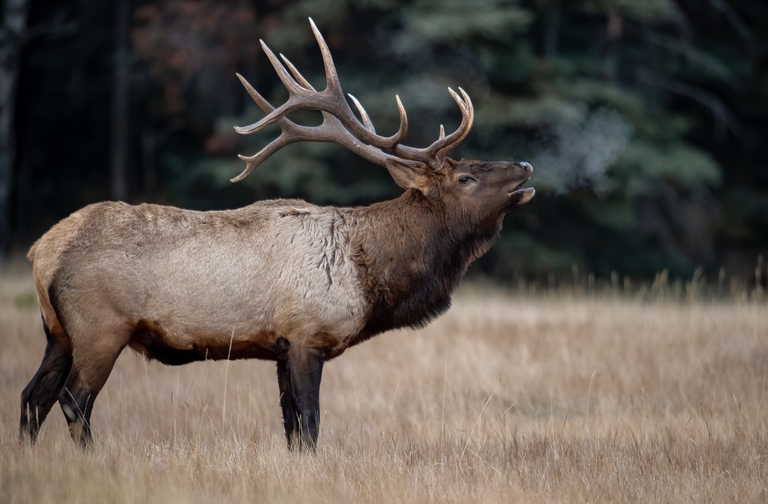Duck Hunting: The Ultimate Beginner's Guide
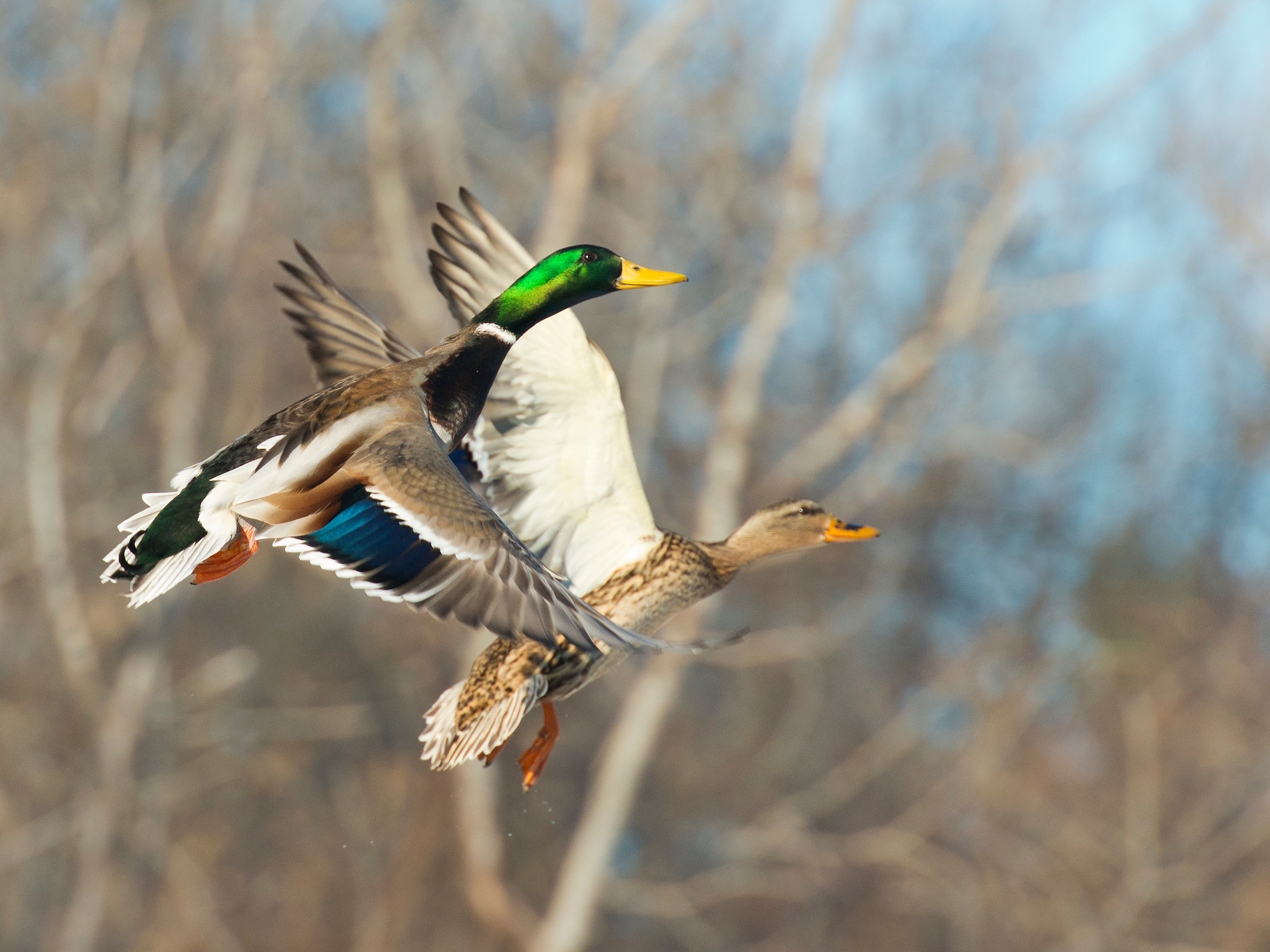
If you're starting as a duck hunter, you probably have many questions: Where do I go? What camo do I wear? What does each duck look like?
Well, you've come to the right place for answers!
This beginner's guide will answer some (but not all) of your duck hunting questions. Keep reading to learn about gear, where to hunt, decoys and firearms to use, and how to stay safe when hunting ducks.

Wear the Right Gear
Many would say buying a gun is the first step, but an instrumental part of the beginning stages of duck hunting is observing what others do in the duck blind. So, sometimes, the best way to observe is to leave the gun in the truck.
We recommend your first step to getting started as a duck hunter is having the right camouflage. However, the "right" camo depends on where you plan to hunt.
If you are going to be in a layout blind, camouflage doesn't matter because you are already concealed. Or, if you are hunting a dead grass area, a lighter, grassy camo is best. However, if your hunt takes you to the woods on a flooded timber hole, a leafy and somewhat bark-like print is what you'll need.
After selecting a camouflage, you'll want some waders. Ducks like water, so prepare to get wet. Even if you aren't standing in the water, you might get wet from putting out decoys or sitting in the rain.
Find an insulation that fits the temperature where you'll be hunting. We suggest a more breathable style because you can always layer more clothing under your waders.
Hunt With Experience
The second step would be to find a friend or relative – anybody who hunts responsibly and legally – and get out on the water or in the field with them.
The best way to gain knowledge is through hunting with more experienced hunters. They have put the boat in many times before, blended the layout blinds in with cover, and set up a decoy spread.
Experienced hunters know how to do things that lead to a successful duck hunt, and you will learn by watching them. By going out with someone else and observing, your first hunt will have a much better outcome.
Find the Ducks

One of the keys to a good duck hunt is scouting. You can be the best duck caller and have the prettiest decoy spread around, but that will only matter if ducks are around.
Go for a drive with your experienced friend or relative and watch for fields and waterways where the ducks are. Most ducks will have a roost, where they sleep at night and is their partial home. They also have places where they loaf around and a feeding area.
Remember this one big tip: don't hunt the roost unless you want all the ducks to find a different one! Hunting the roost scares ducks away, so you want to hunt in feeding areas, spots where they hang out, or on the traffic way.
The traffic way is where ducks fly over from place to place, which can be just as good as the feeding or loafing grounds.
If you are in the feeding area, find the "X." The "X" concept is more for field hunting but can also apply to hunting water. Ducks go from their roost to where they feed. They will feed mostly during morning and evening hours.
The "X" is where the ducks stopped feeding the day before and are likely to come back again. Set a bucket or something visual on the "X" so you can find it the following day.
Get Permission
Once you have scouted a spot, get permission to hunt there. Take your presentation seriously when asking people if you can hunt on their property.
Try to look nice and smile; first impressions last a lifetime. Wear street clothes instead of hunting gear, and leave your guns at home.
Let them know you will follow any rules they may have and you will treat their property with respect. When you do hunt on their property, be generous and take them a dressed duck or two to show appreciation.
Consider a Lease or Public Land
Another way to secure a spot is by leasing or buying hunting places. You could also look into public access areas. Many areas offer access to refuges, public lakes, and land for people to hunt on.
Finding public land online or talking to a wildlife officer about the process is easy. Wildlife officers know where the ducks are and are almost always happy to share that information.
You can also use an app like HuntWise to find public and private land and then mark the best spots to find ducks. No matter what you do, be where the ducks want to be for the best results.
Find the Right Firearm

Earlier, we recommended starting your first hunt without a gun. However, when you're ready to bring home your first duck, you need a weapon to do that!
The most common gun for duck hunting is a 12-gauge shotgun. Some hunters may use a 20-gauge for teal or a challenge, but we suggest a beginner use a 12-gauge – as long as the person's frame can handle it.
We also recommend using a semi-automatic shotgun, but a pump-action shotgun will do the trick.
When duck hunting, you must use a non-toxic shot; it's the law. Choose your shot size to match the species and where you are hunting. When hunting teal, we advise using a smaller pellet. Choose a number four or three shot when shooting faster and smaller birds.
Or, when hunting mallards or ducks of a similar size, shoot with the number two shot, as this will give you the knockdown power needed for the bigger birds.
What About Chokes?
Don't (forget the) choke!
Chokes are an add-on to a gun. The choke screws into the bore at the muzzle of the shotgun. Using one can either cause the shot pattern to stay tighter for a longer shot or spread at a shorter distance for a closer shot.
As far as selecting which choke to use, it depends on where you are hunting. A cylinder choke will work great if the ducks finish right in your face. However, a modified choke may be necessary if they finish thirty or forty yards out.
Match your choke to the area you hunt and where the birds will finish.
Select a Decoy
Decoys are a huge part of duck hunting. However, never let anyone convince you that the priciest decoys are the best or that they guarantee you will kill more ducks. Many people have killed a lot of ducks using a painted gallon jug.
For your first set of decoys, you want quality for the price. There's no need to pay top dollar for a pack of full-body ducks. They aren't all expensive, and less costly decoys can work just fine.
Consider Motion
When considering the type of decoys, you will benefit from having motion in your decoy spread. This means using something that causes a ripple in the water or movement in the decoys.
Motion is essential because a group of two or three dozen real ducks does not sit still. A live duck will flap its wings and swim around, so the challenge is to imitate that movement with your decoys. You want the ducks to see and feel that your decoys are live ducks.
A simple but very effective motion decoy is a "robo duck," also called a "mojo duck." These electronic or wind-powered decoys make water currents or have constant wing motion.
You could also go the DIY route by making a jerk rig. This setup creates current and movement in the decoy spread. That little bit of motion can make the difference between ducks finishing in your face or circling eight times before buzzing off.
Perfect Your Call

Duck calling is both very fun and very humbling.
When your calling brings them in, it can make you feel like you are a "duck whisperer." However, when your calling scares them off – which will likely happen when you are a beginner – you will feel like you need a new hobby.
Practice is critical to call ducks successfully. The more you practice, the better you'll get. Duck calling is almost an art – you have to know what to do, when to do it, and how loud or how soft you should be.
There are many ways to start duck calling, but one of the easiest is to watch instructional videos. You'll find plenty of excellent, free videos on YouTube. You can also get involved in a calling class.
Above all, the more practice you put in, the better you will be.
Always Hunt Legally
A crucial thing we can tell you is to make sure you hunt legally. Duck hunting is highly regulated and comes with high fees when hunters break those regulations.
Make sure you complete your hunter safety course, have the right licenses or permits, and know all the rules and regulations, bag limits, and possession limits. Know how to identify the ducks when they are flying and when they are killed.
Then, remember to have fun when you are out there! If you kill up to your limit, that's amazing – but if you only kill a few (or no ducks at all), you can still enjoy the time in the field.
Stay Safe When Hunting Duck! Take Your Hunter Safety Course
Whether you're hunting with your dog, your friends, or family, every hunt should be a joy. It's also a great idea to get youth involved in waterfowl hunting. It's is a pastime that needs to be carried on!
Whether you've hunted duck before or are excited to try your first hunt this season, stay safe in the field. Take the hunting education course for your state through Hunter-Ed, and learn how to carry your firearm safely, shoot your shotgun well, and bring home some ducks for your freezer. Our online courses are available on your phone, tablet, or laptop, so you can learn at your own pace – no matter where you are.
Keep the traditions alive, and remember – shoot where they're going, not where they've been.
Originally published January 16, 2016. Content updated February 5, 2024.

About the Expert: Reid Strobl is an avid outdoorsman with a passion for waterfowling.
When he's not starting QB for his high school football team, he's out in the field honing his skills as a hunter.
Reid has a passion for passing on what he's learned to other young hunters.

